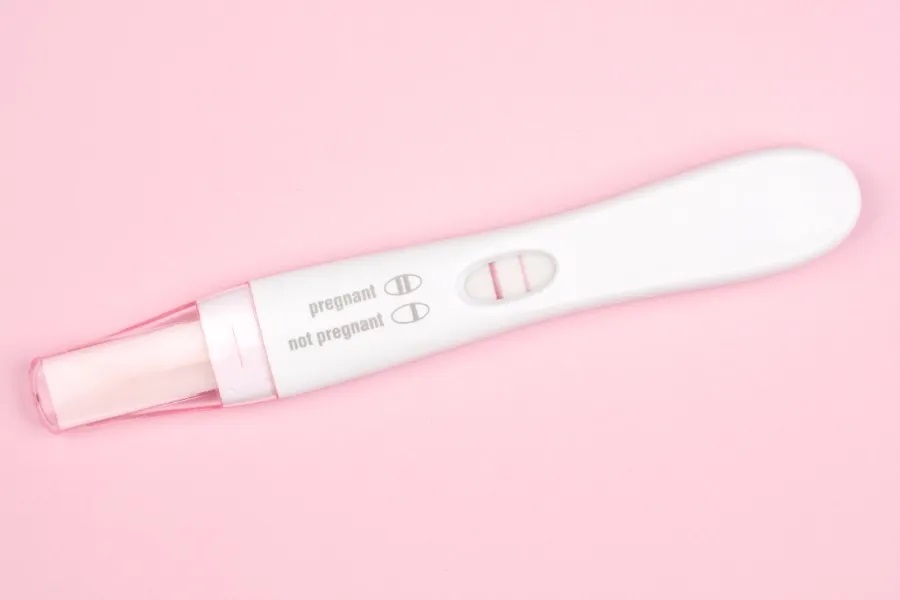The Signs of Pregnancy

For women who have a regular monthly cycle, the most visible sign of pregnancy is when you miss your period. In addition to the onset of certain signs and symptoms listed below, home pregnancy tests kits are very accurate. However, you can be pregnant without experiencing any of these symptoms:
- ‘Morning sickness’ is a classic symptom though it can happen at any time of the day. It is a feeling of nausea with or without vomitting. If you are sick all the time and cannot keep anything down, contact your doctor.
- Changes in your breasts – your breasts may become larger and more tender, like they do before your menstruation. They may also tingle and veins may show up more, and the nipples may darken and stand out.
- Headaches and dizziness due to increased blood circulation caused by hormonal change.
- Feeling tired.
- Needing to pass urine more often.
- There is an increased vaginal discharge without any soreness or irritation.
- Having a strange taste in your mouth – many women describe it as metallic.
- Develop aversion to certain foods or smell, and experience food cravings.
HORMONES
During pregnancy, your hormone levels change. As soon as you conceive, the amount of oestrogen and progesterone in your blood increases. It causes the uterus lining to build up; the blood supply to your uterus and breasts increase and the muscles of your uterus relax to make room for your growing baby.
HOME PREGNANCY TEST
They are designed to tell if your urine or blood contains a hormone called human chorionic gonadotropin (hCG), associated with pregnancy, in your urine. This hormone is produced right after a fertilised egg attaches to the wall of a woman’s uterus. You can purchase do-it-yourself pregnancy test kits from any retail pharmacies. These user-friendly test kits give you quick results and you can do the test in private and at your own convenience.
To take the test, hold the test stick pointing downwards either in the path of the urine stream or dip the stick into a cup of urine already collected. The results windows on the stick will show a control line (to show that the test is working) and the test result. Most test results show up as a line, plus sign or change in colour, depending on the product specifications.
If you have a positive result on your home pregnancy test, you can contact your doctor to confirm the test. A blood test may be ordered or you may be advised by your doctor to get a first prenatal appointment with an obstetric and gynaecology (OBGYN) doctor.
BOY OR GIRL
Every normal human cell contains 46 chromosomes which are tiny, thread-like structures. Each chromosome has about 2,000 genes. These genes determine your baby’s inherited characteristics, such as the hair colour, eye colour, blood group, height and size. A fertilised egg has one sex chromosome from the mother and one from the father. The sex chromosome from the mother’s egg is always the same and is known as X chromosome. However, the sex chromosome from the father’s sperm can be an X or a Y chromosome. If a sperm containing an X chromosome fertilises the egg, the baby will be a girl (XX). If a sperm containing a Y chromosome fertilises the egg, the baby will be a boy (XY).
TWINS OR MORE
Identical twins are conceived when one fertilised egg splits into two. Each baby will have the same genes, same sex and look very alike. Non-identical twins, however, are the result of two eggs being fertilised by two sperms at the same time. The babies could be of the same sex or different sex, and most likely look no more alike than any other brothers and sisters. You may be carrying twins if:
- You feel very sick in the early pregnancy stage
- You are bigger than you should be for your ‘dates’
- Twins run in your family
- Feeling tired.
It is possible to find out if you are having twins through ultrasound scan, which happens between eight and 14 weeks.
Article is extracted from Mother & Child guidebook. For information on Obstetrics & Gynaecology
health care, treatment and services, please visit https://mtalvernia.sg/specialties/women-obstetrics-gynaecology/.



